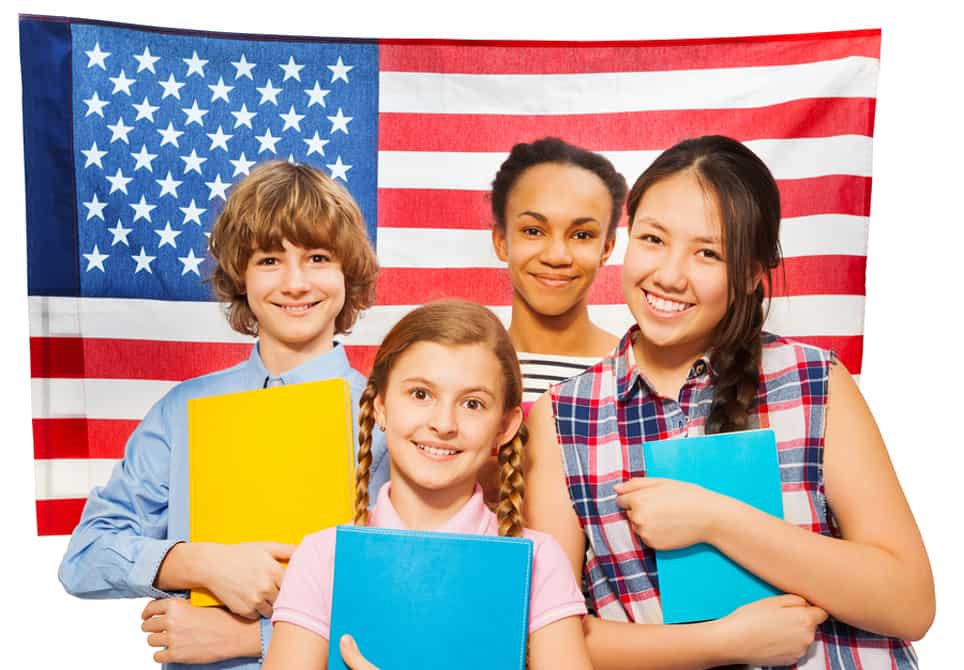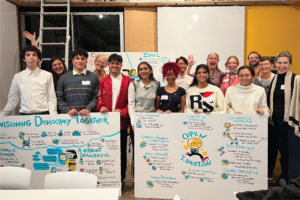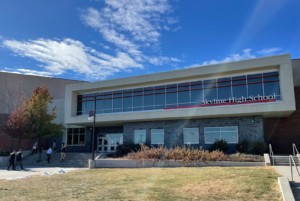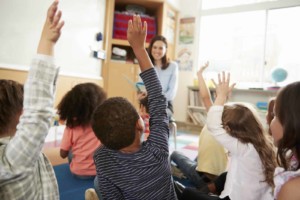Engaging Students with the Values of Democracy

By Cleary Vaughan-Lee
Parker Palmer, author, educator and activist, is admired by teachers for his grounded wisdom and for his encouragement to embrace one’s own deepest questions. He’s written numerous books including The Courage to Teach: Exploring the Inner Landscape of a Teacher’s Life and Healing the Heart of Democracy: The Courage to Create a Politics Worthy of the Human Spirit.
A few years ago, Palmer extracted selections from his book on democracy and crafted the article Five Habits to Heal the Heart of Democracy, published on the Global Oneness Project website. In the article, he explores the attitudes and efforts that he thinks are needed within individuals and communities to strengthen American democracy. What I find so valuable about this article is that it drives us to consider what unites us, rather than what divides us—a challenge that is most relevant for education in communities across the nation, especially in today’s political landscape.
With just a few weeks until the next presidential election, our country is immersed in contentious debates, and the topic of unity is an invaluable subject of exploration for students. Palmer suggests that together we must value our differences, draw inspiration and greater understanding from contradictions, honor the voice and the will of the individual, and celebrate the power of community building in order to restore our democratic society.

I’ve met with educators across the country who are eager to integrate these values into the classroom in connection to the current political landscape. In this lesson, Repairing the Fabric of Democracy, ideas are included for classroom dialogue and writing prompts, all of which are centered on the themes of American politics, conflict resolution and the understanding of the heart. While considering these macro issues and themes, students are challenged to think and write about their own views and experiences, and the environments in which they live. The following are a few examples from the lesson that encourage students to express their perspectives.
Exploring the Values of Democracy with Students
Students are inspired in this lesson to explore what democracy means to them. What are some qualities of citizenship that are essential to sustain democracy in troubled times?
- Draw inspiration and greater understanding from contradictions. The word democracy literally means rule by the people. Abraham Lincoln reiterated this definition in his Gettysburg Address by referring to the United States as a government “of the people, by the people, for the people.” Ask students to brainstorm and develop a list of activities or behaviors that reflect a government “of the people, by the people, for the people.” Some of these answers may include voting for elected officials, civic engagement, running for office, protesting or writing a letter to the editor. Ask students: How do these activities enable citizens to appreciate and value others’ opinions and interests?
- Honor the voice and will of the individual. In his article, Palmer emphasizes simple, human experiences that he thinks are fundamental to a healthy democracy. He writes, “If I were asked for two words to summarize the habits of the heart American citizens need in response to twenty-first-century conditions, I would choose chutzpah and humility.” The word chutzpah can be defined as having audacity, or the willingness to take bold risks. Palmer explains that chutzpah would support his own self-expression, while humility would temper, or counterbalance, any sense that he knows better than others. Ask students if they agree with Palmer. Why or why not? Then ask students: What two words would they choose?
- Value our differences. One resource that I’ve included in the lesson plan is an interactive piece from The New York Times, entitled, Of the People. It portrays a diverse group of American citizens and their thoughts and feelings about the United States and the upcoming 2016 election. Ask students to visit this resource and read the excerpts, which represent varying ages, gender, and geographical locations of U.S. citizens. Then, ask students to write a paragraph identifying a concern they have at their local level—their school, neighborhood, city, or state—and an attitude that might help support or sustain their sense of community engagement. Ask students to draw from their own experiences, as well as draw examples from both the Times article and Palmer’s article.
- Celebrate the power of community building. I love how Palmer encourages all of us to re-think our relationship to our own environments, or as he phrases it, “local venues.” He explains that it is in these “local venues” where we form the base of our decisions and ideas, including our democratic beliefs and actions. These venues include families, neighborhoods, classrooms, congregations, voluntary associations, workplaces and the various other places of public life where “the company of strangers” gather. Ask students to identify one “local venue” in their own lives that has impacted their experience of community. Then ask students to write a paragraph to describe how this place they’ve identified has either encouraged or discouraged the development of their own ideas, attitudes, values and habits related to civic engagement and community responsibility.
Parker Palmer’s article, Five Habits to Heal the Heart of Democracy, and the companion lesson, remind us all of the qualities and values that are needed today, regardless of one’s political leaning. These qualities are essential components of decision-making, as they require us to consider ourselves and others as sharing basic human needs and values. As Palmer writes in one of my favorite lines from his article, “The heart is where we integrate what we know in our minds with what we know in our bones, the place where our knowledge can become more fully human.”
For more information on teaching the values of democracy in the classroom, visit the following resources:
- Education Must Move Center Stage in the Presidential Election
- Would a Kid Make a Better President?
- Civic Education: Can Games Make the Grade?
- PBS Election Central
Cleary Vaughan-Lee is the Education Director at Global Oneness Project. You can follow Global Oneness Project on Twitter @goproject.
Stay in-the-know with all things EdTech and innovations in learning by signing up to receive the weekly Smart Update.







0 Comments
Leave a Comment
Your email address will not be published. All fields are required.